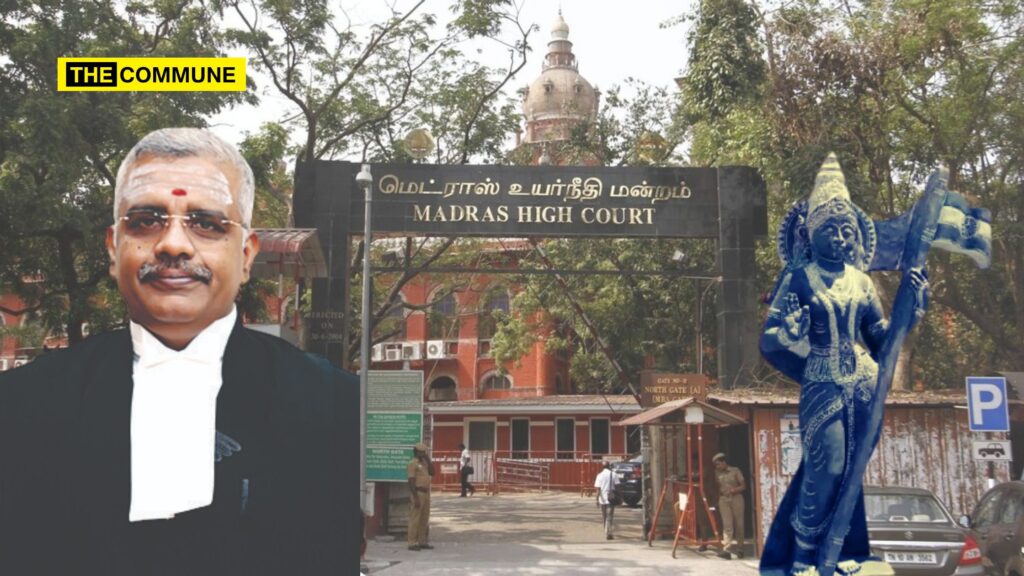The Madras High Court has directed Virudhunagar district authorities to return a statue of Bharat Mata (Mother India) that was unlawfully removed from the Bharatiya Janata Party (BJP) office in Kottaipatti village. The ruling was issued in response to a petition filed by BJP District President G. Pandurangan, who sought the statue’s return and protection against future interference with their right to install it.
The statue, installed at the BJP office premises, was seized by local authorities in August 2023, who cited state regulations governing the installation of statues.
Statue of Bharat Mata Forcefully Removed: Tamil Nadu
In an atrocious incident, Tamil Nadu police removed the statue of Bharat Mata from the premises of the BJP district office in Virudhunagar, Tamil Nadu. This office was newly inaugurated a few months ago by J.P.Nadda.
As part… pic.twitter.com/4ptoPAYypx
— Anand #IndianfromSouth (@Bharatiyan108) August 8, 2023
A Bench of Justice N. Anand Venkatesh ruled that while state guidelines may regulate public installations, they do not extend to private properties such as homes or offices. “It is not the business of the State and its officers to control or regulate the affairs inside the private space of a citizen. Such a course is constitutionally forbidden,” Justice Venkatesh observed.
The Court condemned the manner of the statue’s seizure, suggesting it may have been influenced by “external pressure.” Justice Venkatesh remarked, “I have no doubts in my mind that the respondents have high-handedly taken away the statue of Bharatha Matha from a private property, probably due to pressure exerted elsewhere. This act on the part of the respondents is highly condemnable and should never be repeated in future.”
The Court emphasized that India is a welfare state governed by the rule of law, and arbitrary actions by government officials infringe on citizens’ rights. “We are living in a welfare State which is governed by Rule of Law. Therefore, such high-handedness can never be tolerated by a Constitutional Court exercising its jurisdiction under Article 226 of the Constitution of India,” the Court added.
Highlighting the symbolic importance of the statue, Justice Venkatesh stated that placing a Bharat Mata statue in one’s private space is “a deeply personal and symbolic gesture that embodies respect for the motherland.” The Court compared the act to creating a personal shrine, expressing values of “patriotism, unity, and national pride,” which are protected under Article 51-A of the Constitution. “No person in his right senses could seriously contend that expressing one’s patriotism and love for one’s country would imperil the interests of the State or the community,” the Court said, referencing the Constitution’s encouragement of values such as love and respect for the country.
The Court also asserted that statues representing one’s cultural and national identity on private property should not be subjected to the same restrictions as those of public figures, which may require permission to ensure they do not disturb public sentiment or community harmony. “While it is essential to respect local laws and community sentiments, the act of honoring Bharatha Matha is fundamentally an expression of love and pride,” the ruling stated.
Ultimately, the Madras High Court ordered the district authorities to promptly return the Bharat Mata statue to the BJP office. This decision underscores the Court’s view that patriotic expressions in private spaces should be safeguarded from undue state intervention, supporting citizens’ constitutional rights to personal expression and reverence for national identity.
(With inputs from Verdictum)
Subscribe to our channels on Telegram, WhatsApp, and Instagram and get the best stories of the day delivered to you personally.

